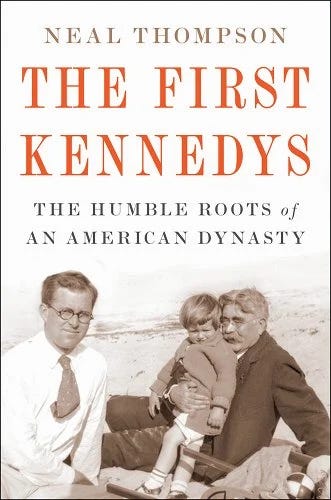📚 What to Read Next (No. 222): New Books About the Kennedys
Happy Friday readers,
There are a few presidents whose stories seem to hold our collective American imagination more than others: George Washington, Thomas Jefferson, Abraham Lincoln, Theodore Roosevelt, and, without fail, John F. Kennedy.
Though JFK has been the subject of hundreds, perhaps thousands, of published books, he remains an elusive character. Which means that great books about him are in surprisingly short supply. Legendary biographer Robert Caro said as much a few years ago in a New York Times article which explored this phenomenon:
“There is such fascination in the country about the anniversary [of his death], but there is no great book about Kennedy.”
That same article points to a theory from author and historian Robert Dallek (whose An Unfinished Life is possibly the best JFK book):
“[Dallek] suggests that the cultish atmosphere surrounding, and perhaps smothering, the actual man may be the reason for the deficit of good writing about him. ‘The mass audience has turned Kennedy into a celebrity, so historians are not really impressed by him,’ Dallek told me. ‘Historians see him more as a celebrity who didn’t accomplish very much.’ Dallek also pointed to a second inhibiting factor, the commercial pressure authors feel to come up with sensational new material.”
Fascinating! (At least for me.) The presidential publishing industry is nearly as interesting as the books themselves.
So, how do these two new Kennedy titles featured today stack up to the rest? Let’s take a look.
P.S. As always, let me know what you’re reading!
Incomparable Grace: JFK in the Presidency by Mark Updegrove
For the reader who doesn’t know a whole lot about Kennedy or why he continues to have such allure in American culture, Incomparable Grace is the perfect book.
It’s slim (under 300 pages), always readable, and provides just the right context: about the president’s childhood, Jackie’s role in the White House, John’s relationship with his brother Robert, John’s numerous sordid affairs, and more.
That personal stuff is always what’s most interesting to me, but Updegrove also gives great primers on JFK’s political mishaps and victories — from the Bay of Pigs and his early failed negotiations with Russia’s Nikita Khrushchev, to the president’s handling of the Cuban Missile Crisis and the successes of the Space Race.
If your eyes glaze over a little bit after reading that last paragraph, I get it. But again, Updegrove utilizes short chapters and great narrative storytelling to make the reading quite approachable.
Perhaps more than anything, though, Updegrove explores why we just can’t get enough of the Kennedys: the social graces, the sense of cool, the picture-perfect fashion sense.
The only problem is that Incomparable Grace doesn’t offer much new or uniquely interesting for someone who’s read a lot about our presidents. I read the whole book, but most of it served as either a reminder or compressed digest of what I’ve read elsewhere.
If you need a JFK primer, this is a great option. If you’re looking for more of an in-depth treatment, I think Fredrik Logevall’s new book or Robert Dallek’s An Unfinished Life will remain the go-to titles.
The First Kennedys: The Humble Roots of an American Dynasty by Neal Thompson
The Kennedy ancestry has been well-covered over the years, as the Kennedy legend has grown:
The Fitzgeralds and the Kennedys by Doris Kearns Goodwin
The Patriarch by David Nasaw
Rose Kennedy by Barbara Perry
The Kennedy Men by Laurence Leamer
The Kennedy Women by Laurence Leamer
In The First Kennedys, author Neal Thompson covers new ground: the Irish ancestry of the earliest Kennedys, primarily Bridget (JFK’s paternal great-grandmother) and PJ (JFK’s paternal grandfather).
Thompson, of Irish ancestry himself, tackles a hard subject; as he admits numerous times throughout the book, we just don’t know, with verifiable proof, all the details of these Kennedys, which leads to a lot of extrapolation based on immigrant life in Boston in the 19th century. And it works! That tactic doesn’t always pan out, but Thompson does it very well.
Bridget ended up in Boston, with absolutely nothing, because of the Irish potato famine, turning herself into an accomplished entrepreneur after being widowed in mid-life.
PJ Kennedy, her only surviving son, improved on that life (as is the hope of every parent and immigrant child), becoming a bar owner and, later, a successful local politician.
With a flair for storytelling, Neal Thompson crafted an enjoyable and incredibly readable narrative that’s not only about these Kennedys, but also about life as an Irish-Catholic immigrant in 1800s Boston — which was not an easy existence, to say the least. It’s a story I’ve not read about before, which made it especially interesting for me.
If you’re at all intrigued by the Kennedy family or the classic immigrant story of America, I don’t hesitate to recommend The First Kennedys.
That’s all for me this week! Thanks so much for reading — I deeply appreciate the time and inbox space.
-Jeremy



